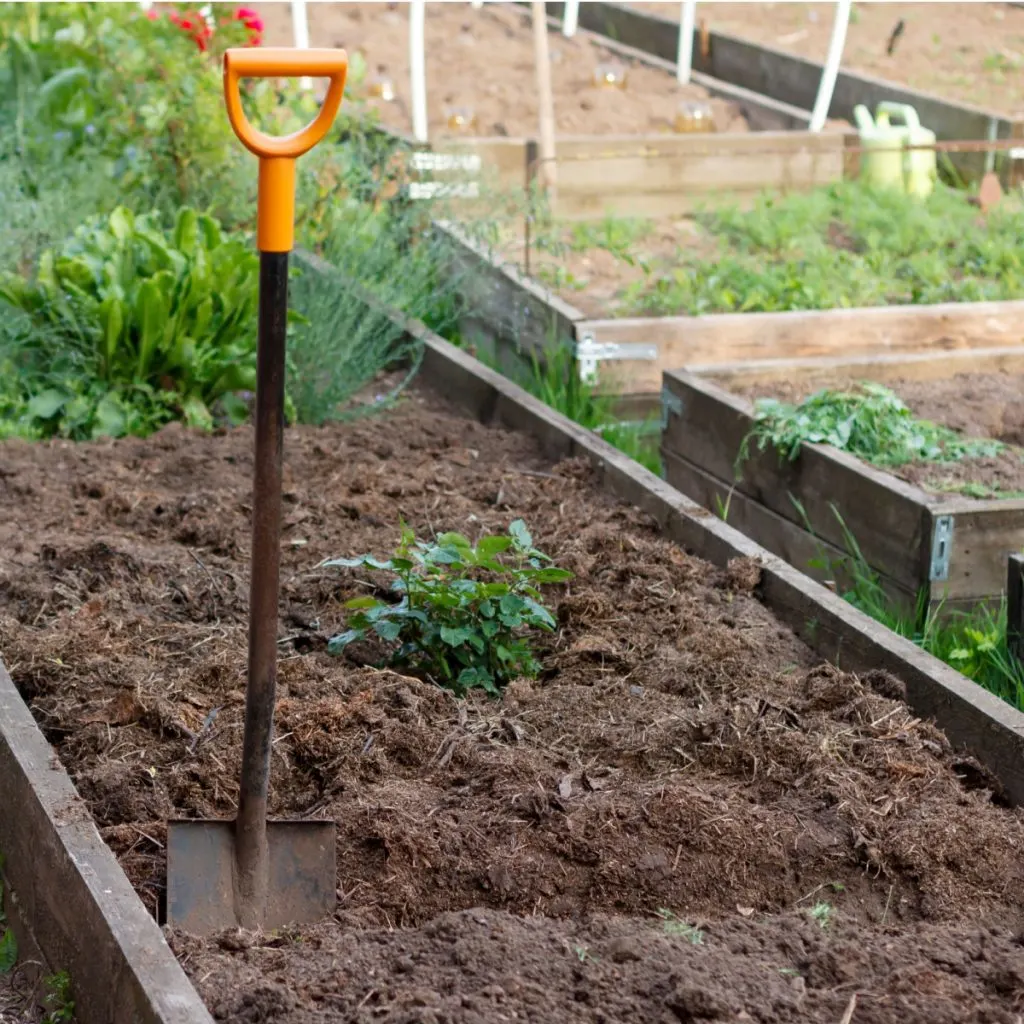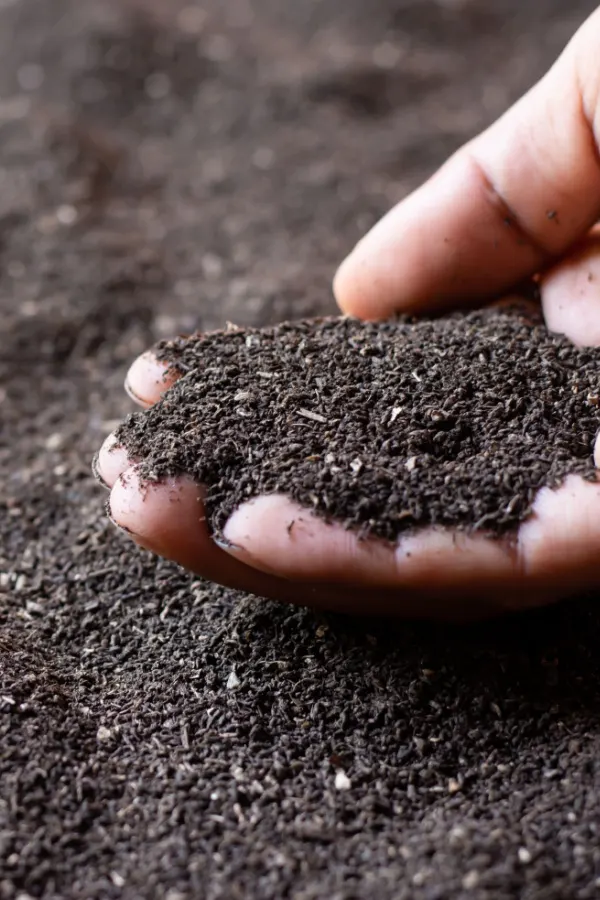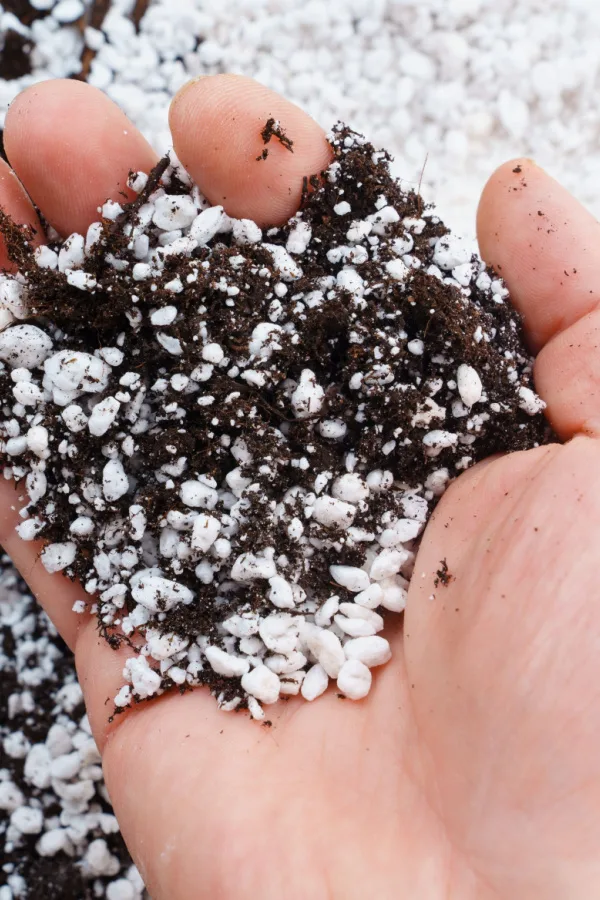Looking for the best way to get the old soil in your raised bed healthy and fertile before you plant this spring?
Raised beds are one of the easiest and most effective ways to grow vegetables, flowers and herbs – especially for those who may not have the space for a traditional garden. But if that soil isn’t properly cared for, or more importantly, isn’t recharged regularly with nutrients, the plants in your raised beds can begin to fail quickly.
Unfortunately, flowers, vegetable plants and even herbs take nutrients from the soil as they grow. And because raised beds have no ability to replenish those nutrients on their own, the soil can become quite sterile and lifeless. And can it ever happen quickly!

Believe it or not, in as little as a single growing year, most of the nutrients in raised bed soil can disappear. And even worse, the soil structure falls apart as well. And as the structure of the soil weakens, so does its ability to hold water or even fertilizer.
As if all of that wasn’t bad enough, stale, tired soil also becomes an inviting home for pests and disease to take hold. Which is exactly why gardeners with raised beds that grow in the same soil see less and less production with each passing season, along with more issues of their plants succumbing to pests and disease.
How To Get Raised Bed Soil Healthy & Fertile
So how can you recharge and power up your raised bed soil in the spring? There are actually several great natural ways to bring life back to the dirt in your raised beds – but by far – the biggest two of all are adding compost and worm castings. They can turn tired soil fertile in an instant!
Compost is teeming with life and nutrients. It helps to retain moisture when added to soil and builds better soil structure. You can add fresh compost every spring prior to planting season. As for how much, ideally you should try to work a few inches into the soil, covering the entire bed.

And worm castings? You simply can’t beat what worm castings can do for the soil – and your plants. They add a tremendous amount of micro-nutrients, all while helping to loosen the soil. They also have the ability to help hold valuable moisture in the soil, while allowing excess water to drain away.
You can certainly sprinkle a light coating of castings over the entire bed. But in addition, always add 1/4 to 1/2 cup of worm castings into every planting hole. This is the best way to provide extra nutrients for plants as they grow – right where they can use it! Affiliate Link: 100% Pure Organic Worm Castings Fertilizer
Additional Ways To Power Soil
In addition to compost and worm castings, there are some other great options to bring more structure and fertility to your raised beds before planting. Here is a run-down of some of the best organic options:
Green Grass Clippings – As long as you don’t use herbicides on your lawn, the fresh grass clippings that come from mowing are great for putting on beds. They contain a long list of micro-nutrients and provide nitrogen too.
Perlite / Vermiculite – These two products do not provide power, but they do help to loosen soil immensely. Even better, they do not break down and help keep soil from compacting in future years too. Affiliate Link: Coarse Perlite Bulk Soil Amendment

Finely Shredded Leaves – Rake up all of those leaves lying around from last fall and shred them up with your mower. Then work a few inches into the soil of your raised beds. Like grass clippings, they will add micro-nutrients and also help build better soil structure as well. The finer you can shred them the better!
Pulverized Egg Shells: Egg shells are a great source of calcium to your soil. And calcium is important for a plant’s early growth and for helping to prevent issues such as blossom and black end rot on tomato and pepper plants.
But don’t just add shell pieces. They can take months if not years to break down. Instead, grind your shells into a powder using an old coffee grinder. The ground egg shell powder gives its nutrients back almost immediately.
Long Term Raised Bed Maintenance To Keep Soil Healthy
The above materials are great for giving a quick boost to raised bed soil in the spring. But don’t forget to take care of your beds this fall as well.
There are two major fall tasks that can really help keep raised beds powerful. The first is to always remove any spent plants from the summer growing season. Allowing old flowers or vegetable plants to decay and remain in the soil over winter is asking for all kinds of issues.
Listen In To Our Podcast Below On Rejuvenating Raised Beds!
As old plants decay, they continue to burn resources from the soil until finally dying off. Resources you can save for plants to use the following year. Old plants that remain also harbor pests and disease. And if they stay in the soil, they can be there to attack your new plants next year.
Cover crops are an amazing way to power raised beds. You can plant a fall cover crop of cereal rye or oats to protect and power your soil. When spring comes around, simply cut the crop down and dig it into the soil. See our article: How To Plant A Cover Crop In Raised Beds.
You can even plant a green manure crop in the early spring in your raised beds. A crop of oats will grow fast, you can then turn it over to give its nutrients back. It’s a great way to power soil before planting season.
At the very least, even if you don’t plant a cover crop, your raised beds should be covered with leaves, mulch or a tarp before winter. Why? Because open soil is an open invitation for weeds to find a home. Even worse, your soil’s nutrients can easily be drained from the soil by winter rainfall, snow and more.
Here is to recharging your raised bed soil this year, and to keeping your beds growing strong and healthy for years to come!
Simple Garden Life
Follow Our Facebook Page For Even More Great Tips! Simple Garden Life Facebook Page
Simple Garden Life is a website dedicated to keeping gardening fun, simple and enjoyable! We publish two new articles each week along with a new garden podcast episode every two weeks. This article may contain affiliate links.
